A Means to an End
Last time in our long monthly episode we discussed writing beginnings. We followed that up in this month’s main episode by talking about endings. We were surprised to find we did not agree on everything and had different viewpoints, but each of our opinions on endings contributed to making an interesting episode (and hopefully, interesting books!).
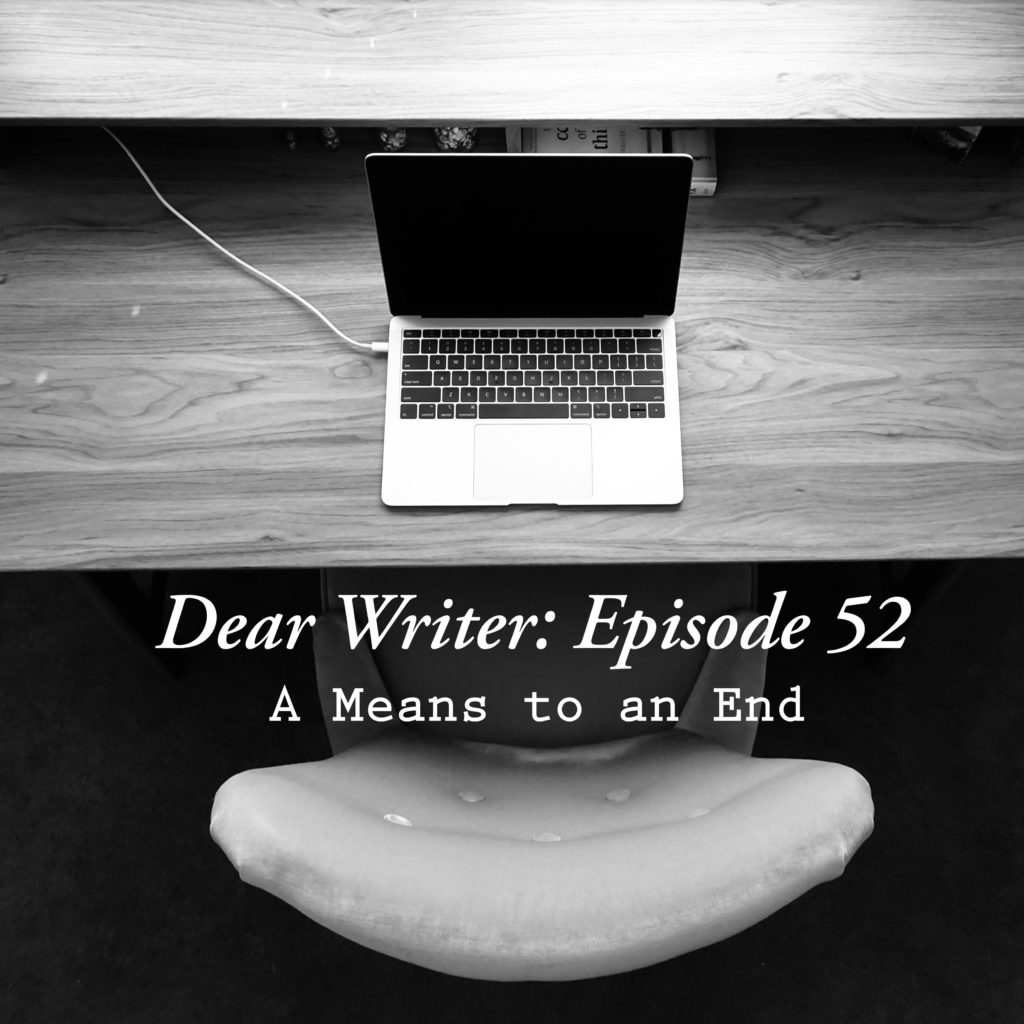
Episode Summary:
Deciding on the ending of your novel is one of the most important decisions an author can make. Your beginning hooks the reader, but a satisfying/gripping ending will bring your readers back. It’s the last thing they read, and as an author you want them coming back for more. Let’s talk about what we think the most important elements of great ending are.
Ashley: There are a number of elements that should be in an ending. For me, the two most important are a satisfying resolution (both the plot and character arcs) and leaving the reader with questions. This sounds contradictory. But I like endings to give closure to the events of the story, but especially since we write series, I also like our endings to raise more questions about the overall plot. So that the readers are satisfied but need to read more to see the fate of the characters later on. It’s an interesting balance. Another one I’ll add on is tension/suspense. I love the feeling when you’re reading the last couple chapters of a book and you can’t read fast enough because of how well the author has built the tension. You want to see how/if the protagonist overcomes their obstacle.
Sarah: To me the ending really, really depends on what you’re writing. There’s a world of difference to writing and ending to a standalone or the final book in a series, versus writing an ending in the middle of a series. If it’s a standalone, you want to make sure all the threads are tied up, and you want the ending to be satisfying for the reader. Though you might have a lot of action in the final payoff scenes, the ending itself doesn’t need to be full of tension. In my standalone psych thriller, I had the final chapter full of drama and uncertainty, but I added an epilogue to wrap up the subplots and explain what happened to the character a few months down the line. I think this can be a good way of managing standalones, because although you want the reader to be gripped by the ending, you also don’t want them to be closing the book with a racing heart wondering what is going to happen, because that can make your readers frustrated when they discover there’s nothing more to come. So you want a slow wind down to bring them to a final resolution.
Writing the ending of a series is a lot different—you want them coming back, so you want them wondering what the next book is going to hold. We are a big fan of cliffhanger endings, despite some people really hating this method. I think the difference between a good cliffhanger ending and a bad one has to be taken into account though: in a good cliffhanger ending, there is one major thread that’s left undone and raises questions. But you still have to ensure the book has that ‘final payoff’ in the last third. You can’t build your way up to the big event and then end the book! The cliffhanger is a result of the final payoff, and how the final payoff directly causes the character’s life to change in a substantial way, whether that be a huge realization they have, or whether their physical circumstances change in a dramatic way. And what the character is going to do about this new ‘change’ is where the cliffhanger is created.
There are also a number of other techniques you can use in the ending, like linking to events that happened at the beginning of the book and creating a sort of circle. Or, you can also have ambiguous endings for novels, which are similar to cliffhangers but leave the reader wondering about several distinct possibilities in the character’s future.
Next, I thought we could talk about the importance of knowing your ending before you start writing. For the pantsers out there, this might seem like a foreign concept. But it does have benefits. So bear with us. The same sentiment goes for ending a series. So, let’s talk a bit about both.
Ashley: It makes your writing a lot more focussed. If you know where the book is going, it will help guide your writing. You don’t necessarily need to know the finer details of how it happens, but knowing if your protagonist dies at the end. Does he make the right or wrong choice? It will help you drop clues and ensure that your character is actually heading down the right path to that ending instead of writing yourself into a corner or writing your character too far off that it’s a struggle to bring the story back. Same with series. Almost, more important with a series. There’s nothing worse than reading a series that’s gone on for way too long and you can tell that the writer had no idea how they were going to end it.
Sarah: I’m going to be very controversial this episode and side with the pantsers a bit. I don’t think you need to know the ending right from the beginning—I think you can follow the character and see where it leads. For example, say you have a very villainous character at the start. Maybe he sets out on a redemption path, or maybe his villainous ways get even worse and he’s a total mess by the end. The final payoff then becomes the consequence of that character’s journey. But, I would probably stop at some point, maybe round the two thirds mark and consider the route they’ve taken so far. At some point round the 2/3 to ¾ mark of your book, you are going to need to make a decision of what that final payoff is going to be. What I would advise against is letting yourself ‘pantse’ the entire thing, but not admitting to yourself that you actually have plans for the character. By that I mean, say you let the character do their own thing. They turn out to be an absolutely horrendous person, and instead of taking this into account and having a satisfying ending that encompasses some sort of final come-uppance or a resolution that shows just how terrible this person is, you harbor a secret desire to see this character get everything they want. You decide to give it a fairytale ending where this terrible person ends up with a lovely wife and kids and he suddenly has a change of heart, when he hasn’t taken any steps towards redemption previously. So, I guess I’m saying the ending needs to be congruent with the story. Which means being honest with yourself about where you see this character ending up. I think this is possibly where thinking ahead can be beneficial.
But whether you pantse or plot, avoiding deus ex machina is crucial. This means you can’t have some random person who the character has never met, or some random coincidental thing happen that solves all the characters problems in one foul swoop, as this is ultimately unsatisfying for readers.
Talk about how we actually decide on the ending event/conclusion of each story, which is different to actually writing the ending.
Ashley: The nature of writing collaboratively means we plan extensively. Usually, we come up with a brief two or three sentence plot summary/main event. Once we have decided on that, we start to fill in the story into a more detailed outline. This is usually when we figure out what happens to the characters at the end. Does anyone die? If so, who? What happens to the rest of the characters? What sub-plots from the previous book are we going to wrap up. What do we want this book to lead into? Is there any important set up we need to do for the future?
Sarah: As per Ashley above. But additionally, the stakes have to build progressively. There’s no use having an event that’s crazy and exciting midway through, only to have the tension diminish and evaporate long before the end, because your readers will get bored long before that. They want to see the character’s life getting incrementally more complex, until the character has to face their hardest challenge yet. That’s where the satisfaction comes in with the ending. We have had it before with The Price of Pandemonium where the biggest event was midway through the book, and then the tension dissipated. This is where editing also helps—once we identified it, we asked ourselves, how can we ramp up the tension in these last few chapters? How can we make this event trump that gigantic thing that happened several chapters before? And it’s not necessarily as hard as what you think to fix, even if on paper one event looks like the crux of the book, we had that event set up the future final payoff. The cumulative effect on the character’s health and wellbeing made the final event even more tension-filled.
How do we write our endings? What tricks do we use to make sure they are satisfying?
Ashley: I’ve written one. Sarah has written two. I think knowing what has to happen in the last chapter is key. I also like to loosely map it out and have a good idea of how it’s going to play out in my head. Usually, by the time I get to actually writing the chapter, I have a good idea of how I want it to end. I wrote the end of The Price of Pandemonium and knew exactly what sort of message I wanted to end on that would lead in perfectly to the next book. It was just a matter of figuring out exactly how to get to that point. I tried not to force the writing either, and let it flow naturally. The go back and re-work it.
Sarah: Funnily enough I wouldn’t say I’ve written two of ours—the first one was a bit of a coincidence. The book was too long and I more chose the point where we should split it, and though it was a chapter I wrote, initially it wasn’t supposed to be an ending. But, it did work perfectly, even down to the very last line! But I have had experience writing my own psych thriller and doing the ending of Darkness, Set Us Free. In Darkness, Set Us Free, I tried really hard not to rush the final payoff, which is something I find tricky when it’s action-filled and the pace is fast. My hardest part was having the action slow down naturally enough from panic-filled terror to a sort of lower key (but still high tension and high-stakes) kind of dread. I like to have an ending that resonates with the theme, too, which I think can make it feel more satisfactory to the readers. The final lines, like when we were discussing the opening lines, have to be well thought out and leave the reader thinking about the character, whether through open ended questions or pondering the theme and the character’s arc.
Editing. How does the editing help us make more gripping and satisfying endings?
Ashley: Editing is critical. Often on the first draft, a lot of the fine details about the book aren’t hashed out yet. For us, yes the big finale is planned but many of the sub-plots are not. So it’s incredibly important for us to go back and make sure that everything ties together as it should. That we have left enough clues, and that we have actually resolved all the plot lines we need to. This is a point we often have to address. Unintended sub-plots happen but we neglect to give them a proper conclusion. On a number of occasions we have had to go back and fix/tie off those loose ends.
Sarah: Editing helps me to make sure I have included all the threads. It’s easy to miss threads that need to be addressed when you’re writing the first draft. I often write the ending, then think, “oh, I haven’t mentioned this situation, the readers will wonder about that…” and so I’ll retroactively add those smaller subplots in. They need to be at least identified in someway so the reader knows whether this is an important thread that might continue in the next book. If it doesn’t, then it needs to be resolved either in the final chapter or earlier in the book. Sometimes a character that seemed important at the start just drops out of existence… you generally want to avoid this by tying up the loose end somewhere along the line! And again, those last couple of paragraphs I often rework until the wording is perfect, making sure it flows naturally from the bulk of the chapter, but that it rounds off in a satisfying way.
Six types of endings (generally): 1. Loop (ending ties back to the beginning), 2. Surprise ending (switch up the story to take the reader by surprise), 3. Moral of the Story (last line spells out what you want the reader to get from your story), 4. Cliffhanger, 5. Happily Ever After/Crystal ball (where you explain what happens in the future), 6. The Ambiguous ending. Do we have a particular one (or two) we prefer? Is it genre specific? Are there any we don’t like?
Ashley: As a reader I prefer the cliffhanger and the moral of the story, which is probably why I gravitate toward writing those types of endings. With the cliffhanger, I don’t end the story mid-event. Usually there comes a point where you can naturally end that still answers questions for the reader. I do think it is genre specific, broadly speaking. Not that you absolutely have to stick to it, but if you are reading a romance, I think you will expect a certain type of ending vs reading a thriller etc. Personally, I’m not a fan of ambiguous endings where I have to try and interpret what has happened. I like to know outright what has happened.
Sarah: I’ve kind of mentioned this already, about the cliffhanger for series, and a loop ending for stand-alones is nice. As you can probably tell with my comments on theme, I also like moral elements to be tied into the ending, whatever form it takes. Surprise endings are great as long as they’re really well set up. If they don’t have enough clues on the way, it can feel a bit like Deus ex machina where the author has arbitrarily added something in to make it seem dramatic but it doesn’t really work. Ambiguous endings can be done well, I prefer them for standalones if the writer is trying to point out a moral grey area, where two different forms of thought are presented at once, which sort of leaves the reader thinking hard about their own beliefs. But if it’s a straight question of where the character ends up without any moral questions, then I don’t like them as much because it feels like the writer simply hasn’t bothered deciding!
I don’t think endings have to be genre specific, but that said there are certain tropes in genres that are more accepted. For example, romance typically has a fairy-tale ending. Thrillers usually have a false ending that is followed by the true resolution. But they do not always stick in these categories, so if we take my previous example there are many great romances that end tragically, but these ones usually have a moral element to them instead of the happy ending. So you can play with different ideas for endings and most are still workable in your genre.
Chapter ending are also really important as well. You want to make sure you keep the reader engaged. You want them to keep reading. Talk about how we decide to end our chapters and some techniques that we use. How do we decide what goes in a chapter, and where to end it.
Ashley: I like to mix up my chapter ending types. I think I alternate between cliffhanger style endings and moral endings where the character sums up their feelings/thought/observations and then leaves the reader with a question or a thought. I always consciously try and make the reader want to keep going when I’m finishing a chapter. We plan them out like little episodes. Each chapter has a well-defined story points that must be covered so I generally like to give them a distinct beginning and a really good conclusion. I find most chapters for me come to a natural end, and if I haven’t come to an appropriate point to stop that is intriguing enough, I’ll usually keep on writing until one emerges.
Sarah: I do similar to Ashley and like to leave the readers with questions or deeper insight into the character for chapter endings. But I typically will make every end sentence have at least a hint of a ‘cliffhanger’ style to it that encourages the reader to turn the page. I started doing this after reading the first few novels in The Expanse series, because I noted pretty much every single chapter was a cliffhanger, and sometimes I’d turn the page without realising the chapter had ended. And just pulling my books off the shelf as I was writing the notes for this show, I noted a similar pattern in all the books that keep me riveted. The chapters, without fail, all end at a point of something with exciting (good or bad) about to happen.
As to chapter endings which I don’t like: I find ones that don’t ‘wind down’ properly without character reflection or without a true cliffhanger to be the most jarring—sometimes I’ve read books where I think the writer was going for a cliffhanger, but rather than a dramatic end it feels like it just stopped mid conversation, or even mid thought. It comes down to what I said earlier, but on a smaller scale. Just like your book has an arc, each chapter also has an arc. The chapter still has to have a resolution, the cliffhanger forms from the resolution and raises a new question—what’s going to happen next?
What do we find most challenging about writing a satisfying ending?
Ashley: When to stop and not being too preachy. Often, I have an idea of where to end things, especially with chapters and to some extent the actual end of the novel. It’s easy to ramble on and on so finding the perfect balance can be tricky.
Sarah: Slowing down the action to make it a satisfying end. Even with a cliffhanger that ends after an action packed scene, the clue is in the word—cliffhangers makes the reader feel as if they’re hanging—not as if they’ve fallen off the edge of the cliff already! I think if you end too abruptly readers can be like, woah! What the heck happened there? Where’s the rest of the story? And this feeling can be accidentally created if it ends at a 10 on the tension scale, because readers will read faster the higher the tension. So you don’t want them to be reading the words ‘the end’ before their mind has had a chance to catch up with the events of the story. I struggle with slowing down tension in general.
Do we prefer writing endings or beginnings?
Ashley: Such a hard choice. Beginnings are harder I think. Endings come a bit more naturally when you are in the flow of writing. Overall, maybe beginnings? Though we definitely haven’t had as much trouble with endings.
Sarah: I definitely prefer writing endings, because I get a huge sense of satisfaction out of creating the perfect note to end the book on. Probably as much satisfaction as the reader gets reading it! Beginnings I find somewhat frustrating.









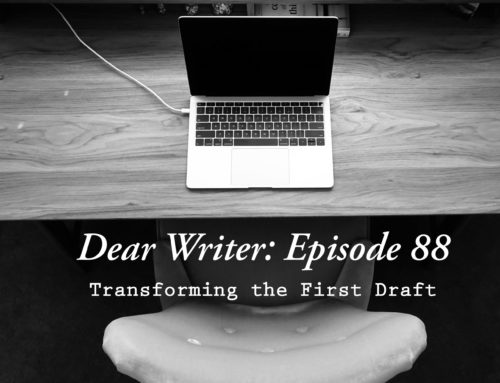
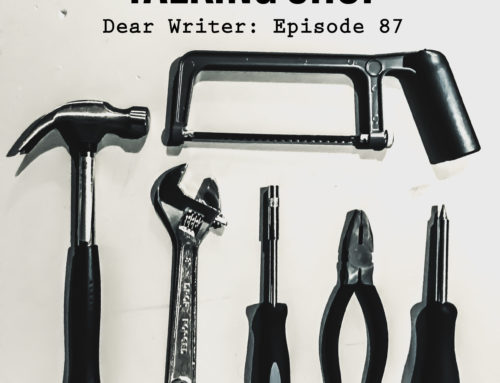



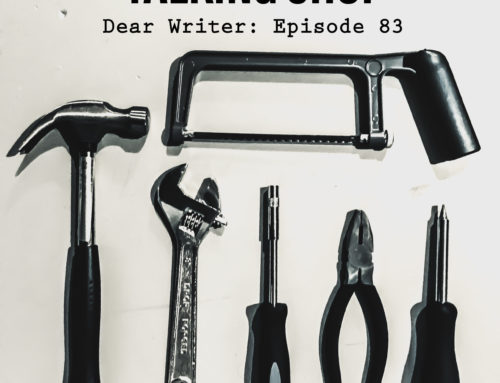


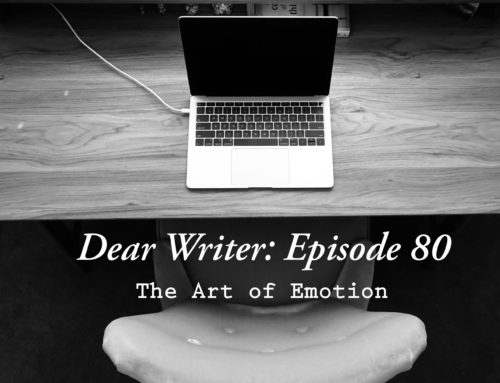
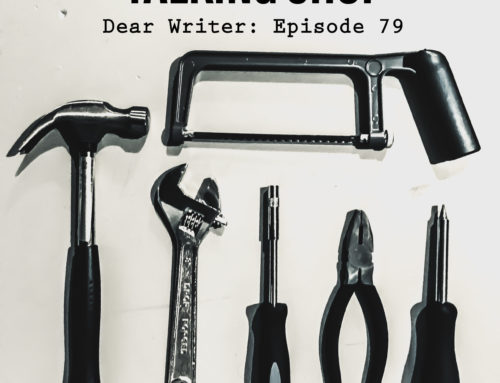
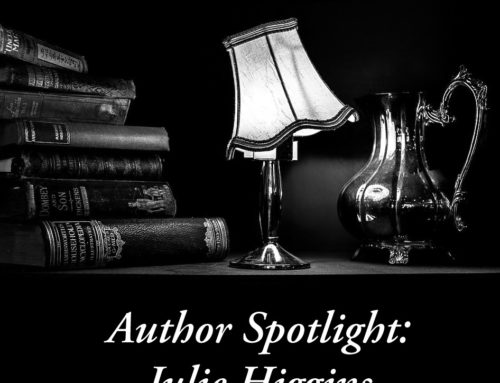

Leave A Comment